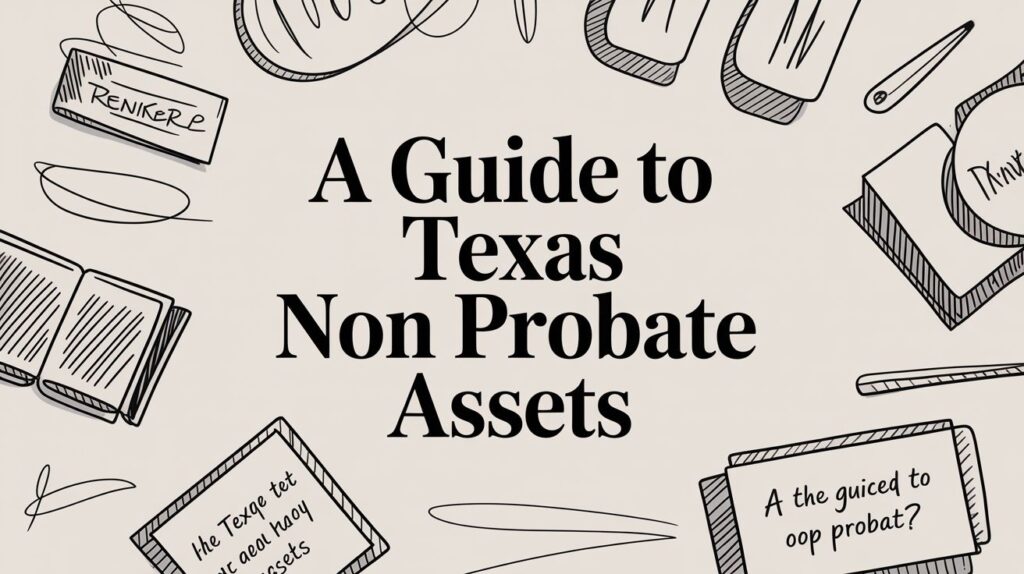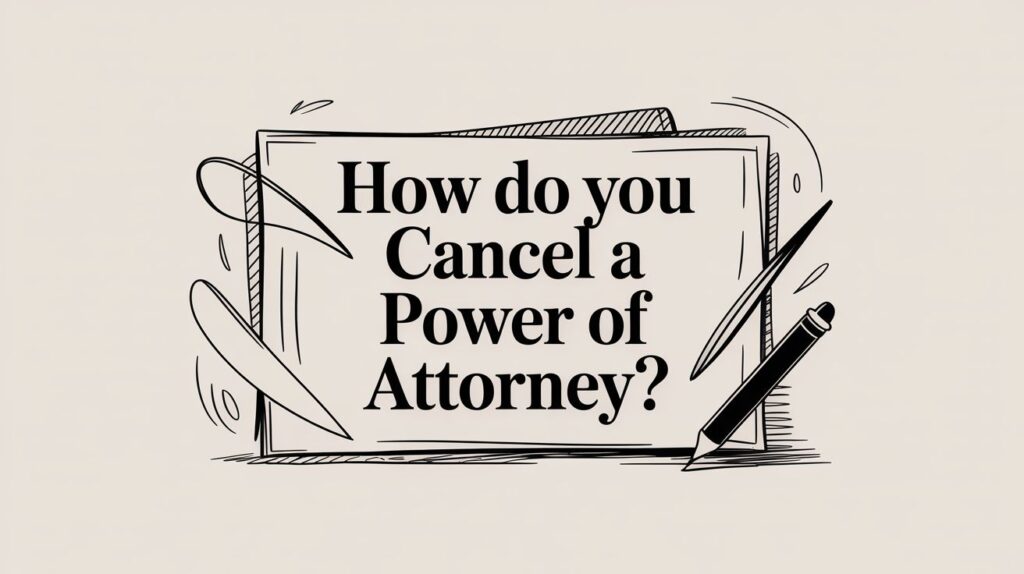Losing a loved one is difficult, and dealing with the legal process that follows can be overwhelming. If you are handling an estate, you may wonder what to expect at a probate hearing in Texas. Understanding the probate process, the differences between formal and informal hearings, and what happens in court can help you navigate this legal procedure with confidence.
This guide explains everything you need to know about probate hearings in Texas, including the steps involved, the key differences between formal and informal probate, and what role an executor or heir plays in the process.
Understanding Probate Hearings in Texas
Probate is the legal process of settling a deceased person’s estate, ensuring that their debts are paid and assets are distributed to the rightful heirs. In Texas, a probate hearing is typically required to confirm the validity of a will or to appoint an administrator if no will exists.
A probate hearing is not always a complicated event, but it is an essenti
al step in making sure the estate is handled according to Texas law. The complexity of the hearing depends on factors such as the size of the estate, the presence of a will, and whether any disputes arise among heirs or creditors.

The Purpose of a Probate Hearing in Texas
A probate hearing serves several key functions in the estate settlement process, ensuring that assets are distributed legally and fairly. This hearing allows the court to oversee and validate all aspects of estate administration.
Validating the Will
If the deceased had a will, the court will confirm its authenticity. The judge will ensure that the document was properly signed, witnessed, and executed according to Texas probate law. If any concerns arise, additional evidence may be required.
Appointing an Executor or Administrator
The judge will formally name the person responsible for managing the estate. This individual, often named in the will, will oversee asset distribution, pay off debts, and handle other estate-related matters. If no executor is named, the court will appoint one.
Resolving Disputes
Any challenges to the will or estate distribution are addressed. Heirs, beneficiaries, or creditors may contest the will based on fraud, undue influence, or lack of mental capacity, leading to additional legal proceedings if necessary.
Handling Debts and Taxes
The court ensures that outstanding debts and taxes are properly managed. Executors must notify creditors and use estate funds to pay off debts before distributing assets to heirs, preventing legal complications down the line.
Distributing Assets
Once all legal requirements are met, theestate is divided among heirs according to the will or state law. If there is no will, Texas intestacy laws determine how assets are allocated, typically prioritizing spouses, children, and other close relatives.
Types of Probate Hearings in Texas
There are different types of probate proceedings in Texas, and the type of hearing required depends on the specifics of the estate.
1. Formal Probate Hearings
Formal probate hearings are required when:
- The will is contested by an heir or interested party.
- There are disputes over the estate’s assets or debt payments.
- The executor is challenged or deemed unfit to serve.
- There is no valid will, and the estate requires court supervision.
These hearings can be lengthy and involve multiple court appearances, evidence presentation, and witness testimony. A judge will oversee the process to ensure fair resolution of disputes.
2. Informal Probate Hearings
Informal probate is a much simpler process and is often used when:
- There is a valid, uncontested will.
- All heirs agree on how the estate should be distributed.
- The estate qualifies for simplified probate procedures, such as Muniment of Title or Independent Administration.
In an informal probate hearing, the judge quickly reviews the paperwork, approves the executor, and allows the estate administration to proceed with minimal court involvement.
Step-by-Step Process of a Probate Hearing in Texas
The probate hearing process generally follows these steps:
Step 1: Filing the Probate Application
The process begins with the executor or an interested party filing a probate application in the Texas probate court. This must be done within four years of the deceased’s passing.
Step 2: Notification to Heirs and Creditors
Once the court accepts the probate application, heirs and creditors are notified. Creditors have the right to file claims for outstanding debts, and heirs can raise concerns about the estate’s distribution.
Step 3: The Probate Hearing
At the probate hearing, the judge will:
- Review the will’s validity (if applicable).
- Appoint the executor or administrator.
- Address any objections from heirs or creditors.
If there are no disputes, the judge will move forward with the estate settlement. If conflicts arise, additional court dates may be required.
Step 4: Inventory and Appraisal of Estate Assets
The executor must compile a detailed list of assets, including real estate, bank accounts, investments, and personal property. Some assets may require professional appraisals to determine their value.
Step 5: Settling Debts and Taxes
Before distributing assets, the executor must ensure that all valid debts, taxes, and funeral expenses are paid. If the estate lacks sufficient funds, assets may need to be sold to cover the obligations.
Step 6: Final Distribution of Assets
Once debts are settled, the remaining assets are distributed to heirs based on the will or Texas intestate succession laws if no will exists. The executor provides a final accounting to the court for approval.

What to Expect During a Probate Hearing
While probate hearings vary depending on the estate’s complexity, here’s a general overview of what you can expect:
- Presentation of Documents – The executor or attorney will present the will, death certificate, and other required paperwork to the judge. The court may also request additional documentation if any information is incomplete or unclear.
- Swearing in the Executor – The judge will formally appoint the executor or administrator, giving them the legal authority to handle the estate. The executor will take an oath, affirming their responsibility to manage the estate fairly and lawfully.
- Addressing Objections – If heirs or creditors dispute the will, the judge will hear arguments and review evidence. The court may allow testimony from witnesses, medical experts, or financial professionals to clarify contested issues.
- Court Approval or Additional Hearings – If there are no disputes, the judge will approve probate and allow the executor to move forward. If issues arise, the case may require further legal proceedings, which could extend the probate timeline significantly.
Common Challenges That Can Arise at a Probate Hearing
Probate hearings are not always straightforward. Some common issues that can complicate the process include:
Will Contests – Disputes over the validity of the will can delay probate. Common reasons for contesting a will include claims of forgery, fraud, or undue influence by a third party.

Executor Disputes – Heirs may challenge the appointed executor’s ability to manage the estate. If the executor is seen as unfit due to conflict of interest, lack of experience, or misconduct, the court may appoint a different administrator.
Creditor Claims – If the estate has significant debt, creditors may argue over repayment terms. The executor must carefully verify all claims, ensuring that debts are settled in accordance with Texas probate laws.
Missing Heirs – If an heir is difficult to locate, the court may require extra steps before finalizing asset distribution. This may include publishing legal notices or hiring a professional heir locator to ensure all rightful beneficiaries are identified.
How to Prepare for a Probate Hearing in Texas
If you are involved in a probate case, preparation is key to ensuring a smooth process. Follow these tips:
- Gather All Required Documents – Ensure you have the will, death certificate, financial records, and asset inventories.
- Consult with an Attorney – A probate lawyer can help navigate complex legal matters and address potential disputes.
- Notify All Interested Parties – Make sure heirs and creditors are aware of the hearing to avoid unnecessary delays.
- Prepare to Answer Questions – The judge may ask about the will, estate assets, and any disputes. Be ready with accurate information.
Alternatives to Full Probate in Texas
In some cases, full probate may not be necessary. Texas offers alternative probate procedures for simpler estates, allowing heirs to transfer assets more quickly and with fewer legal hurdles.
1. Muniment of Title
This process allows a will to be used as proof of property transfer without a full probate hearing. It is available when there are no outstanding debts. It is one of the quickest probate alternatives and is often used for real estate transfers when no additional estate administration is required.
2. Small Estate Affidavit
If an estate is worth less than $75,000 (excluding homestead property), heirs may use this streamlined process to transfer assets without a court hearing. This option works well for families with simple estates but requires all heirs to agree on asset distribution.
3. Independent Administration
This allows an executor to handle the estate with minimal court oversight, reducing legal fees and speeding up the probate process. Many wills in Texas include language permitting independent administration, but if not, heirs may agree to it with court approval.

Final Thoughts: Navigating the Probate Hearing in Texas
Knowing what to expect at a probate hearing in Texas can help reduce stress and ensure a smooth legal process. Whether you are an executor, beneficiary, or concerned family member, understanding probate procedures can help you make informed decisions. Being prepared can prevent unnecessary delays and make the process easier for all involved.
For complex cases, consulting an experienced probate attorney is highly recommended. A skilled lawyer can help navigate disputes, ensure legal compliance, and protect the interests of heirs and beneficiaries. With the right preparation, you can handle probate efficiently and honor your loved one’s wishes without unnecessary complications.








